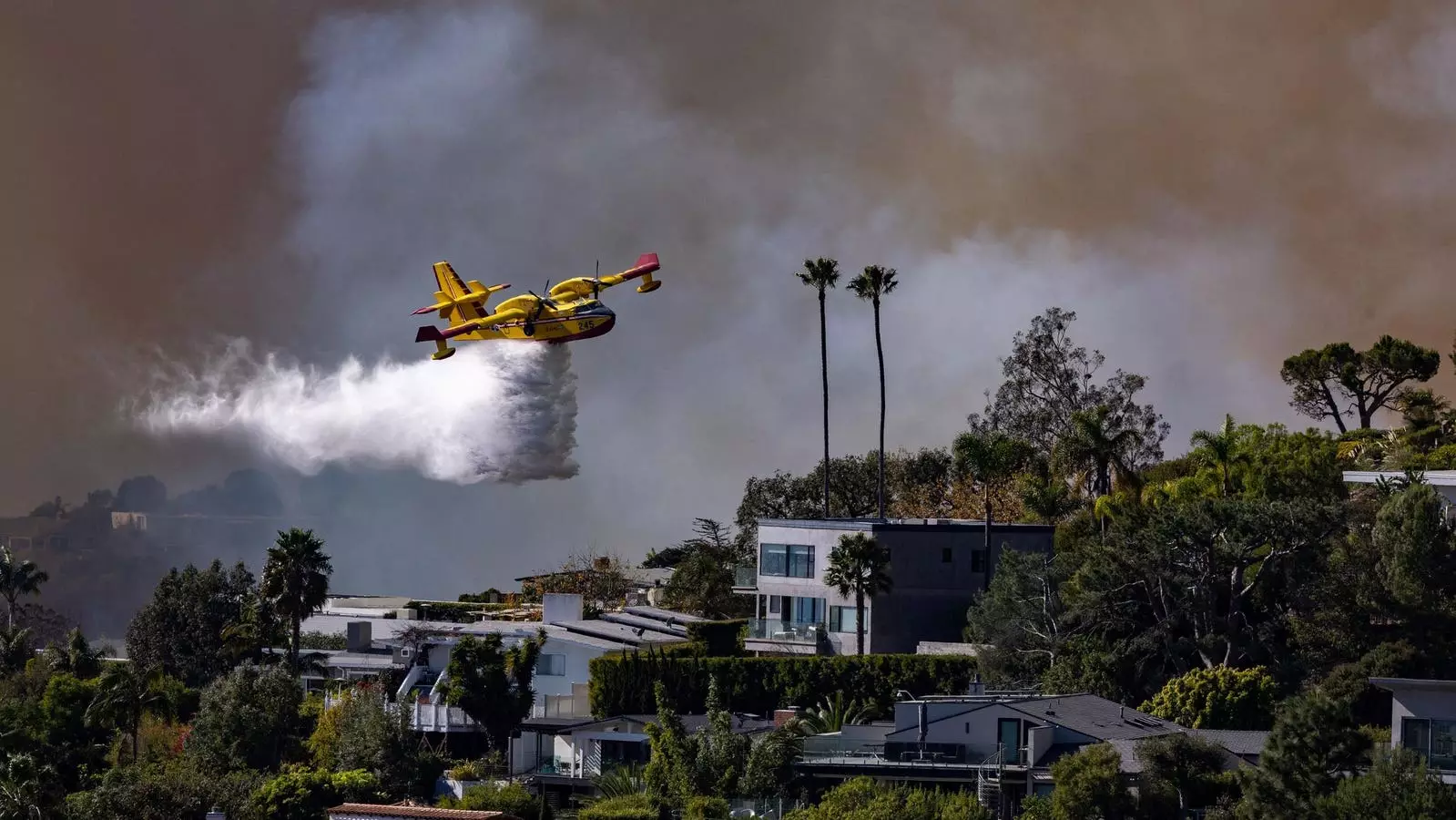The wildfires ravaging Los Angeles have emerged not just as a local disaster, but as a symbol of the broader climate crisis affecting many regions across the globe. Recent discussions surrounding the influence of prominent figures like Stewart and Lynda Resnick have gained traction amidst the chaos, often invoking their connection to California’s water politics. However, attributing the devastation solely to the Resnicks or a supposed lack of water is overly simplistic and misleading. While the couple does hold significant sway over the state’s water resources through their company, the Wonderful Company, the issue at hand is much more complex and multifaceted.
The unfortunate reality is that many eyes have turned towards the Resnicks in search of a culprit rather than seeking to understand the underlying systemic failures in California’s emergency water management systems. For example, the claim that fire hydrants ran dry during critical moments has circulated widely, yet investigative analyses reveal that the reservoirs in Los Angeles stand at capacity. The core problem lies within the infrastructure itself, which is ill-equipped to handle the scale of modern wildfires.
Quick conclusions often obscure the truth, and in the case of California’s wildfires, conflating fire management with corporate influence obscures the more pressing need for adaptive measures against climate change. While the Resnicks’ influence is noteworthy, the focus should instead shift to the policies that govern water access and distribution during emergencies.
Dr. Mark Gold from the Natural Resources Defense Council emphasizes a critical point: America has concentrated its efforts on reducing greenhouse gas emissions but has neglected the equally vital task of adapting to climate change’s harsh realities. Water security, wildfire preparedness, and improving coastal resilience are imperative areas demanding immediate attention. This represents a fundamental disconnect in national policy, which has prioritized mitigation over adaptation.
As the frequency and intensity of wildfires increase due to changing climate dynamics, California’s emergency services must also evolve. The current infrastructure cannot keep pace with the rapid shifts, leaving communities vulnerable when they are most in need. Recognizing this issue prompts the necessity for innovative solutions that bolster existing systems.
Further compounding the problem is the misconception that our water supply is always adequate. The public must be educated on the actual conditions of resources during wildfire emergencies to foster a more informed dialogue. As the adage goes, “forewarned is forearmed.” Stakeholders should work towards transparency regarding water use and limitations, fostering trust and understanding with at-risk communities.
The response of companies like the Wonderful Company to crises is also a telling element of corporate responsibility. Their recent commitment to donate $10 million towards Los Angeles fire relief can be viewed as a proactive step towards community engagement. It acknowledges corporate roles in mitigating the adverse effects of climate change, but it also begs a critical question: Should corporations only respond during crises, or should they also invest in preventive measures?
Indeed, businesses must progress beyond mere charitable contributions. They should advocate for systemic reforms that enhance fire management strategies while minimizing environmental impacts. Such actions could involve collaborative efforts that include local governments, non-profit organizations, and community stakeholders, ultimately crafting a multi-faceted approach to a daunting crisis.
The discourse surrounding the Los Angeles wildfires highlights a critical need for society to shift its perspective on climate-related challenges. It is vital to move past assigning blame to influential figures and towards a comprehensive understanding of the systemic issues at play. The integration of adaptive strategies for resource management could very well be the turning point in combating the severe challenges posed by climate change.
No longer can we afford to solely focus on mitigation; the time has come for substantive adaptation efforts that confront the realities of our changing climate. By fostering collaboration among various stakeholders, understanding our resource systems, and implementing effective policies, we can develop a resilient framework capable of withstanding the intensifying waves of climate crises.

